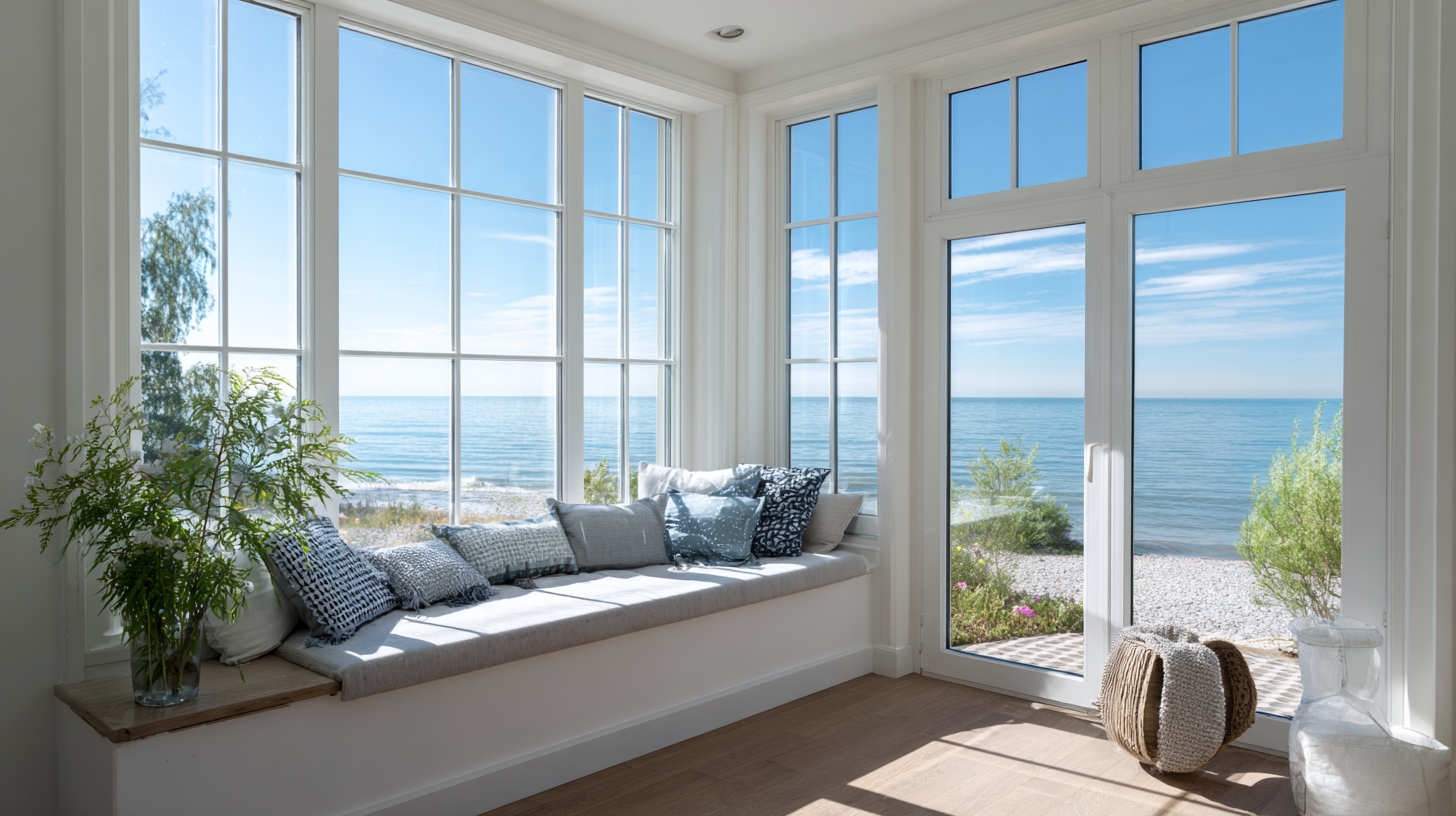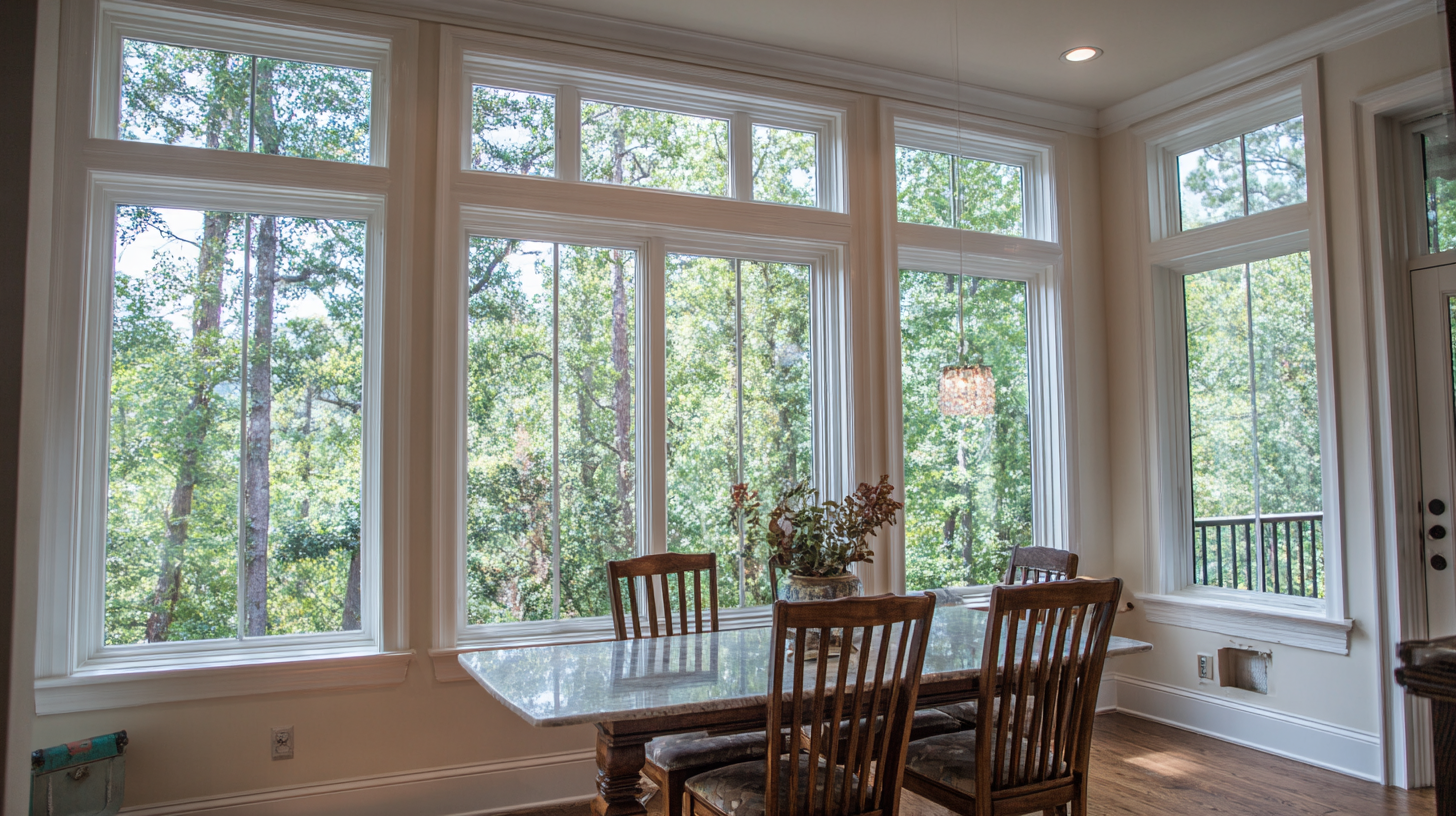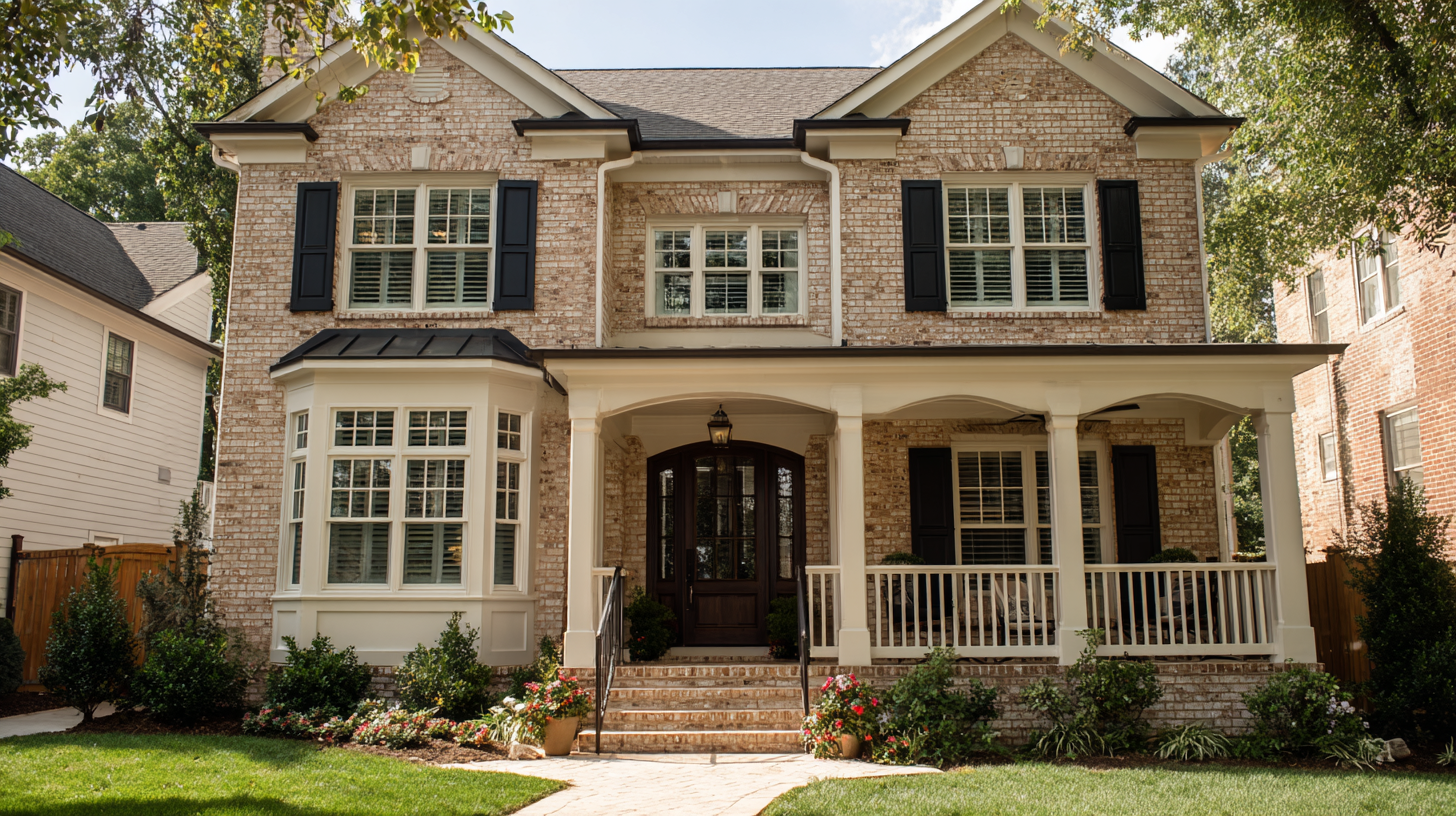- Toronto +1 (416) 633-5921
- Burlington +1 (905) 581-4015
- Ottawa +1 (613) 731-6224
As homeowners increasingly focus on energy efficiency and cost savings, vinyl windows have emerged as a popular choice in residential renovations and new constructions. According to the U.S. Department of Energy, replacing single-pane windows with energy-efficient options like vinyl windows can save homeowners between $125 and $465 annually on energy bills, depending on geographic location and local energy costs. In addition to their cost-saving potential, vinyl windows offer exceptional insulation properties, reducing heat transfer and helping maintain comfortable indoor temperatures year-round. A report from the Lawrence Berkeley National Laboratory indicates that energy-efficient windows can reduce household energy use by up to 12%. With these compelling benefits, it's no wonder more homeowners are opting for vinyl windows as a solution that combines durability, aesthetic appeal, and long-term energy savings.

In 2023, homeowners increasingly gravitate towards vinyl windows, recognizing their substantial benefits in energy efficiency and cost savings. The rising popularity of these windows stems from their superior insulation properties, which significantly reduce energy consumption for heating and cooling. Unlike traditional materials like wood or aluminum, vinyl windows offer excellent thermal resistance, helping homeowners maintain comfortable indoor temperatures year-round while minimizing utility bills.
Moreover, the affordability and low maintenance of vinyl windows contribute to their appeal. As homeowners seek long-lasting investments, vinyl emerges as a cost-effective choice that does not compromise on quality. Advanced manufacturing technologies ensure these windows are not only durable but also aesthetically versatile, complementing various architectural styles.
This combination of energy efficiency, cost savings, and minimal upkeep solidifies vinyl windows as a preferred choice, reflecting a broader trend towards sustainable and economical home improvement solutions in 2023.
Vinyl windows have carved out a significant niche in the market, particularly for homeowners seeking energy efficiency and cost savings. According to the U.S. Department of Energy, replacement windows can save homeowners between $126 to $465 annually on energy bills, depending on their location and the type of window they are replacing. Vinyl windows, with their multi-chambered frames and efficient insulation properties, contribute significantly to these savings, making them an attractive option.

Furthermore, a study by the Fenestration and Glazing Industry Alliance (FGIA) reveals that vinyl windows can provide up to 30% more energy efficiency compared to traditional wooden windows. This is largely due to their resistance to air leaks and superior insulation performance, which translates into reduced heating and cooling costs. Additionally, the National Association of Home Builders (NAHB) reports that about 70% of homeowners opting for vinyl windows noticed a marked decrease in their energy consumption within the first year. These compelling statistics underscore the rising preference for vinyl windows among homeowners prioritizing energy efficiency and long-term cost savings.
When evaluating the cost-effectiveness of vinyl windows compared to traditional options like wood or aluminum, the long-term savings become evident. According to the U.S. Department of Energy, homeowners can save up to 30% on energy bills by upgrading to vinyl windows, which are designed to provide superior insulation. Over a span of 20 years, this translates to substantial savings. For instance, if a household spends an average of $3,000 annually on energy, switching to vinyl could yield savings of approximately $18,000.
Additionally, the upfront cost of vinyl windows typically ranges from $300 to $700 per window, while wood windows can cost upwards of $800 to $1,200. Despite the higher initial investment for traditional options, the lower maintenance and energy costs associated with vinyl make it a financially sound decision over time. A study by the American Home Improvement Association found that homeowners recoup about 70-80% of the investment in vinyl window replacements when selling their home, which further solidifies vinyl as a viable long-term investment in energy efficiency and cost savings.
Vinyl windows have emerged as a popular choice among homeowners looking to enhance their property's energy efficiency while simultaneously reducing long-term costs. According to the U.S. Department of Energy, energy-efficient windows can save homeowners an average of 30% on their energy bills. The insulating properties of vinyl windows help to minimize heat transfer, keeping homes cooler in the summer and warmer in the winter, thus reducing reliance on heating and cooling systems.
A report from the National Fenestration Rating Council (NFRC) highlights that vinyl windows often come with low U-values and high Solar Heat Gain Coefficients, indicating excellent thermal performance and appropriate solar control. These features contribute significantly to the overall energy efficiency of a home. Moreover, the durability and low maintenance requirements of vinyl windows mean that homeowners not only save on their monthly energy costs but also on replacement and upkeep expenses in the long run. As energy prices continue to climb, the decision to install vinyl windows becomes increasingly appealing.
When selecting vinyl windows for your home, it’s essential to focus on energy efficiency and durability. First, look for windows that have a high Energy Star rating or are certified by the National Fenestration Rating Council (NFRC). These certifications indicate that the windows meet stringent energy efficiency standards, helping you save on heating and cooling costs while keeping your home comfortable year-round.
Next, consider the frame design and materials. Vinyl windows come in various styles, so it’s important to choose a design that complements your home's architecture. Additionally, opt for windows with multi-chambered frames that provide better insulation and thermal performance. Lastly, don’t overlook the importance of the installation process. Proper installation is crucial for maximizing the energy efficiency of your vinyl windows. Be sure to hire a reputable contractor who has experience with vinyl window installation to ensure a perfect fit and long-lasting performance.

Call us one of our 3 offices across Ontario, Canada
Thanks for contacting us!
We'll get back to you as soon as possible.